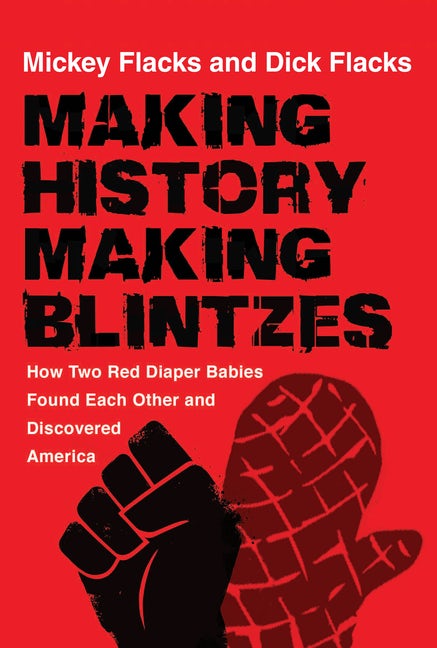Interview with Dick and Mickey Flacks
Activists Cover Six Decades of Political Engagement

Dick and Mickey Flacks have championed progressive causes from 1960s campuses to today’s environmentalism and feminism. Dick is a former UCSB professor beloved by decades of sociology students and denounced by Ronald Reagan. Mickey has been a tenacious advocate for small-d democracy since she refused to join her high school honors society on the grounds that such accolades separated “the chosen” from the rest of her generation.
Inspired by the nonviolent volunteers who risked their lives to desegregate the South, the Flacks contributed to the Port Huron Statement, the credo of Students for a Democratic Society (SDS), the largest radical campus organization of the ’60s.
Relocating to Santa Barbara in 1969, they double-helixed the personal and the political. From cooperatively building community schools, free clinics, and slow-growth environmental councils while raising two now-grown sons in accord with their beliefs, “Dick and Mickey” continue to spring into action, whether it’s a family being separated at the border or one occupying the White House.
Now they’ve charted their journey in a joint memoir, Making History / Making Blintzes. The authors recently spoke with the Independent about their book.
Explain the book’s name.
Mickey: We’ve been talking about the book for 20 years, and a friend suggested the title. “Making History” refers to Dick’s book, Making History [a 1988 look at American political participation and the Left]. “Making Blintzes” [a folded cheese pancake] represents domestic life, family life, and Jewish culture.
And the alternating voices?
Dick: Writing separate narratives simply offered shared but different perspectives.
What does it mean to live a political life?
Dick: I learned that the best way to understand the fundamental goal of social change was to think about democracy in its fullest sense. The tradition of the Left — amid the warring ideologies, all seek to empower ordinary people to take control of the conditions of their lives. One of the standards we’ve used is, “Does this help the community we live in?”
You were married in 1959 and had a family when that often was being denounced. How did your personal life anchor your politics?
Mickey: We were raised with the notion of family and movement indivisible. We didn’t see the revolution in terms of self-deprivation. Our house became a surrogate home for lots of those revolutionaries.
What does Santa Barbara offer the activist life?
Dick: As soon as we got here, in the aftermath of the oil spill, we began to see that if you can create positive developments on a community level, they are part, hopefully, of a worldwide mosaic. Because Santa Barbara’s a small, manageable place, you can see the outcomes of your actions more readily than in the big cities. Of necessity, anyone left of center had to band together; it’s been very gratifying to observe how the politics of this region have shifted far to the left of where they were when we got here.
What would a new New Left look like?
Dick: The resistance to Trump unites people who might not otherwise come together. And the second big stream now is the uprising of women. It’s going beyond what was defined as possible before Trump, toward solving fundamental problems.



